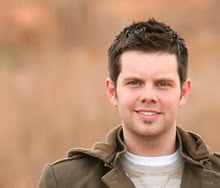 Jonathan Merritt is a young theologian in Atlanta who broke into the national conversation this month by championing, within the conservative Southern Baptist faith, the declaration of a new set of principles regarding creation care and climate change.
Jonathan Merritt is a young theologian in Atlanta who broke into the national conversation this month by championing, within the conservative Southern Baptist faith, the declaration of a new set of principles regarding creation care and climate change.
While noting continuing debate on some global warming questions, the declaration made a point of stating that we as a species can damage the planet and that such actions are wrong. The declaration stressed that “we do not believe unanimity is necessary for prudent action,” and that “humans must be proactive and take responsibility for our contributions to climate change — however great or small.”
The declaration was signed by three of the four most recent presidents of the Southern Baptist Convention, including the current office holder, Frank Page. In a phone interview, Merritt conceded that the resolution, like all resolutions issued by the SBC, is non-binding, but he and his fellow counselors are pleased that, since the declaration made the national news, hundreds of prominent Southern Baptists have signed on, including divinity school presidents, pastors, seminary professors, and missionaries.
Merritt said that it represented an “evolution” of the Southern Baptist position on the issue, but the mildness of that description is debatable. In the Resolution on Global Warming issued in June 2007, the Southern Baptist Convention used the dismissive rhetoric of climate change denial, claiming the science was “divided” on the question of global warming and that measures to reduce emissions were “very dangerous” and costly. Because the Southern Baptist denomination is the second largest in the country, with over sixteen million adherents, the church’s position on social issues makes news.
Not only do these believers stake out a new position on the issue, but they use the language of repentance to describe the change, which makes their change of heart sound almost like a conversion experience. The declaration mentions the “study, reflection, and prayer” the signatories underwent before reaching consensus on the declaration, and added in a widely-quoted statement:
We believe our current denominational engagement with these issues have often been too timid, failing to produce a unified moral voice. Our cautious response to these issues in the face of mounting evidence may be seen by the world as uncaring, reckless and ill-informed.
I asked Merritt about this language, saying that if I were a reporter in a courtroom, I would describe this as a statement as “remorseful.”
He agreed.
“There was a certain amount of humility and a certain amount of remorse,” he said, and added that he attended Jerry Falwell’s Liberty University as an undergraduate, graduating with a degree in chemistry and biology, but he hadn’t seriously considered the issue of global warming until he went to divinity school. In a theology class, as he told an AP reporter, he was struck by a professor’s comparison of destroying part of God’s natural world to tearing a page out of the Bible. Merritt said, “That broke me, and that was the impetus that began a life change, a shift of perspective for me.”
In recent weeks, Merritt has written columns for the Atlanta Journal-Constitution, defending the declaration against attacks from the likes of Tony Perkins of the conservative Family Research Council, a spin-off of James Dobson’s Focus on the Family parachurch, who criticized the declaration and those who signed it for “lending credibility” to the environmental movement. Merritt also defended the declaration against attacks from Nashville minister James Parham, who called it “fainthearted.”
On the phone, Merritt stressed that it would be a “horrific travesty” for anyone who believes that the natural world is part of God’s revelation to stand by and do nothing as part of that world is destroyed.
“Younger evangelicals have a more extensive political repertoire,” he said. “We are still committed to the sanctity of life and to a biblical definition of marriage, but we are not a single-issue or a double-issue denomination.” Merritt went on to mention a poll in Relevant, an online magazine for young evangelicals, that asked thousands of young readers (among other questions), “Who Would Jesus Vote For?“
The answer? Barack Obama won overwhelmingly with almost 29 percent, beating even Baptist minister Mike Huckabee and leaving the likely Republican candidate, John McCain, in the dust at 6.6 percent. (The poll was apparently taken before the Jeremiah Wright controversy, but still — impressive.)
Just 1.8 percent of evangelicals believe that Jesus Christ would vote for Hillary Clinton in 2008.


